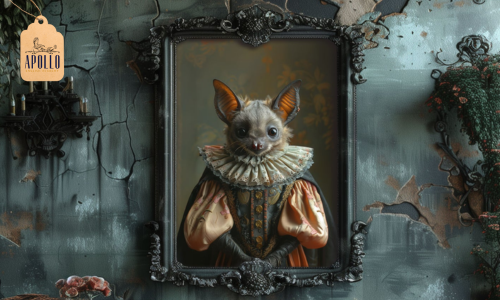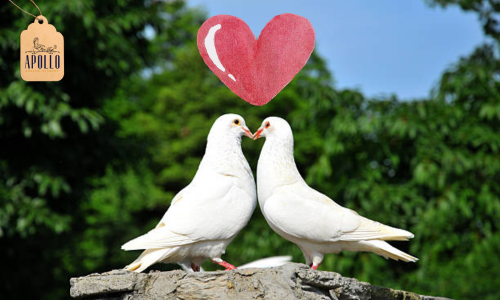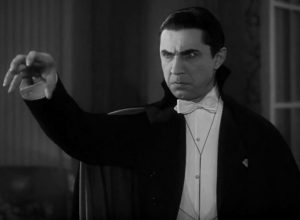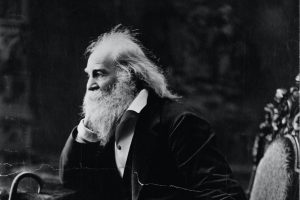Introdução
Quando o calendário marca 26 e 31 de maio, dois nomes surgem que dificilmente estariam lado a lado numa mesma conversa: Dracula, o icônico romance gótico de Bram Stoker, e Leaves of Grass, a obra revolucionária de Walt Whitman. Um mergulha na escuridão do medo e da imortalidade. O outro, na celebração da vida, da natureza e da liberdade interior.
Mas e se te disséssemos que esses dois universos têm algo em comum? Que ambos exploram, com profundidade, o poder da linguagem, seja para seduzir, assustar ou emocionar?
Neste artigo, vamos desvendar o que une o vampiro mais famoso da literatura ao poeta mais livre da história americana. Prepare-se para uma viagem literária onde o inglês ganha vida, ritmo e muitas camadas de sentido.
📖 Aqui você encontra…
Nível:
B1
Objetivo:
Aprofundar o contato com o inglês por meio da literatura, explorando vocabulário expressivo, análise de estilo, figuras de linguagem e reflexões culturais através de dois clássicos que desafiam a forma e a linguagem.
Tópicos gramaticais abordados nesse texto:
-
Past Simple: Para narrar eventos históricos e publicações importantes.
Exemplo: “Dracula was published in 1897.” -
Present Simple: Para discutir temas literários atemporais.
Exemplo: “Whitman writes in free verse and celebrates individuality.” -
Passive Voice: Para dar ênfase à obra ou ação recebida.
Exemplo: “Leaves of Grass was first released in 1855.” -
Relative Clauses: Para enriquecer descrições de autores e obras.
Exemplo: “Whitman, who broke poetic conventions, redefined literature.” -
Literary Vocabulary: Termos como gothic, free verse, imagery, tone, symbolism, dread, mortality, intuition e expression.

A Literary Week Worth Celebrating
This week, two iconic literary dates quietly appear on the calendar, and although they seem to come from opposite worlds, they share a deep message about how powerful language can be.
On May 26, we celebrate the anniversary of the publication of Dracula, Bram Stoker’s legendary gothic novel that introduced the world to the most famous vampire of all time. Then, just a few days later, May 31 marks Walt Whitman’s birthday, the revolutionary American poet who changed literature forever with Leaves of Grass.
One brought us darkness and immortality through fear. The other gave us light and eternity through poetry. Together, they remind us that language, whether whispered in the shadows or shouted in celebration, is one of the most powerful tools we have to express human experience.
Dracula: Darkness, Control, and the Power of the Written Word
When Dracula was first published in 1897, it wasn’t just a horror story. It was a complex novel told through letters, diaries, telegrams, and news clippings. This structure, called an epistolary novel, made readers feel like they were part of the mystery. Every word mattered. Every phrase added to the suspense.
More than just a vampire tale, Dracula explores fear, sexuality, death, and the loss of control, and it does this all through language. Count Dracula himself is a master of persuasion. His words seduce, manipulate, and dominate. The novel shows how communication can be both a weapon and a form of survival.
For learners of English, Dracula is a gateway into formal Victorian English, vivid imagery, and gothic vocabulary. Words like dread, gloom, enchant, and bloodlust might not be in everyday conversations, but they’re unforgettable.
Walt Whitman: The Voice of Freedom and Identity
In contrast to Stoker’s shadowy suspense, Walt Whitman’s work bursts with life, emotion, and openness. His most famous collection, Leaves of Grass, broke every poetic rule of his time. He wrote in free verse, celebrated the human body, and saw the self as something vast and sacred.
Whitman’s writing invites readers to feel rather than simply read. He talks directly to us, encouraging a connection between nature, language, and personal truth. His poems speak of liberty, equality, and the beauty of the ordinary.
For students of English, Whitman is a great example of how language can be intuitive, emotional, and expansive. His words aren’t difficult, but they carry enormous meaning. Reading him helps learners build vocabulary, understand rhythm, and reflect on identity in a second language.
What Connects a Vampire and a Poet?
At first glance, Dracula and Leaves of Grass couldn’t be more different. One lurks in the night, the other sings in the daylight. But both books are obsessed with the idea of time, mortality, and what it means to live fully. Or forever.
Dracula fears death and avoids it through darkness. Whitman embraces life and finds eternity in every moment. Yet both use language as a gateway, to power, to beauty, and to the unknown.
And that’s exactly why they still matter today. In different ways, they teach us that words can create worlds, carry emotion, and leave a lasting impression. Whether you want to learn English to tell stories, express feelings, or simply understand others better, these authors remind us that how we use language can change everything.
A Lesson for English Learners
Reading literature like Dracula and Leaves of Grass helps students do more than memorize grammar. It teaches them to observe tone, style, and rhythm. It builds cultural knowledge and stretches the imagination. Most importantly, it proves that English is not just a language: it’s a bridge to explore humanity in all its complexity.
So whether you prefer the thrill of gothic horror or the beauty of poetic freedom, this week is your chance to discover what language can do when used with intention and creativity.
Conheça a Apollo!
Na Apollo Academy, aprender inglês é também mergulhar em histórias que marcam gerações. Se você acredita que a língua vai além da gramática e quer explorar o idioma com profundidade, sensibilidade e criatividade, esse é o seu lugar.
✨ Quer mergulhar num inglês com mais alma, profundidade e imaginação?
Manda uma mensagem pra gente. Sua próxima aula pode ser o começo de uma história incrível, escrita por você!
Let’s turn your English into something unforgettabe!
🦇✨ Are You a Gothic Bat or a Love Dove? ✨🦇
Are you the mysterious soul who thrives in the shadows, or a soft romantic floating through life? Answer these questions and let’s find out if you belong in a castle of darkness or a garden of love. 🏰💀 vs 🌸💌
Where would you rather live?

What’s your ideal night out?

Your fashion vibe?

If you could fly, where would you go?

Pick something to decorate your home:

What’s your ultimate mood?

If you could poop on someone, who would it be?

Your dream pet:

Favorite type of weather?

Your ideal date:










